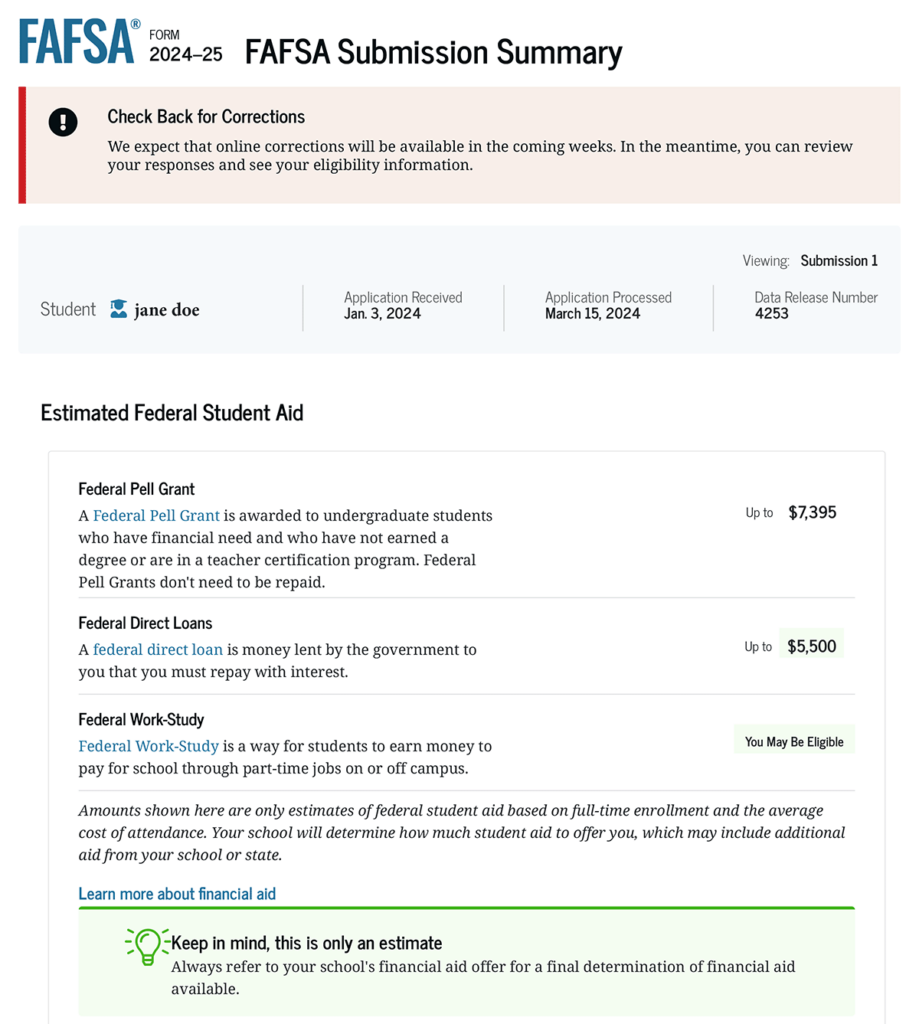Motorola Solutions Foundation has consistently supported the Sarbanes Scholarship program since 2005. Beginning in 2020 an Enhanced Scholarship Initiative, made possible by a generous donation by Motorola Solutions Foundation, will provide for a larger, and in certain cases, full, scholarship on an academic year-by-academic year basis. This initiative is consistent with the Motorola Solutions Foundation’s mission.
In order to be eligible for an award under this program, the applicant must be pursuing a major in a STEM subject or public safety. Awards under this program are made on a year-by-year basis and will be based on an assessment of financial need and academic performance using a composite scoring system.
In certain cases, the status of course study as STEM or public safety will be obvious. Examples of STEM majors are physics, mathematics, chemistry, biology, engineering, computer science, environmental science and agricultural science. Examples of public safety majors are criminal justice, public safety administration, public safety and security and emergency management. In situations where the status of a course is less clearly defined, the Foundation’s scholarship managers will analyze the core curriculum and graduation requirements to determine whether the applicant’s proposed course study qualifies as STEM or public safety. We are happy to let you know in advance whether we will consider your proposed course of study to be STEM or public safety. Please direct all inquiries to Eric Nagle at [email protected].
Eligibility Requirements
- Spouse, life partner, child, or stepchild of a fallen firefighter honored at the National Fallen Firefighters Memorial in Emmitsburg, Maryland. Children must currently be under the age of 30 AND have been under the age of 22 at the time of their firefighter’s death.
- Applicant must possess a high school diploma or equivalency or be in their final year of high school.
- Applicant must currently be pursuing, or planning to pursue undergraduate or graduate studies, a certification program or job skills training at an accredited institution, online college or university.
- Applicant must be currently enrolled or planning to enroll as a full-time or part-time student.
Selection Criteria
- Submission of a completed scholarship application between January 1 – March 1 by an eligible applicant.
- In determining awards, each applicant will be assigned a composite score representing the sum of that applicant’s financial need score and academic performance score. Applicants with higher composite scores will receive scholarships that are enhanced relative to applicants with lower composite scores.
- Spouses and life partners are automatically assigned the highest possible financial need score and need not submit financial information. For all other applicants, financial need will be assessed based on an evaluation of the applicant’s FAFSA Student Aid Report, which should be submitted in connection with the application form. No applicant needs to submit any financial information other than the FAFSA, although if an applicant chooses to provide additional information for consideration, she or he is welcome to do so. There is no requirement to submit financial information to receive a scholarship award. Spouses and life partners exempt, all other applicants will continue to be eligible for a scholarship award in the event they do not submit financial information but should note that awards vary based upon a composite score that represents the sum of their financial need score and academic performance score. Because the composite score assigns more weight to the financial need score than the academic performance score, applicants who do not submit financial information will necessarily have lower composite scores than applicants who do submit financial information. A lower composite score may lead to a lower scholarship award than would otherwise have been received.
- Spouses and life partners are automatically assigned a top tier score on academic performance. For all other applicants, academic performance will be assessed based on an evaluation of factors,, including: (i) whether the student is pursuing a major in either public safety or a STEM subject in the field of science, technology, engineering or mathematics; (ii) the nature of the student’s course load and the student’s GPA; and (iii) the student’s tuition load relative to the anticipated employment prospects of the chosen major.
Scholarship Application Checklist
- Photo (.jpg or .png) or PDF of Federal Student Aid (FAFSA®) Student Aid Index (SAI) – not required, but strongly recommended
- Photo (.jpg or .png) or PDF of official transcript
- A letter of recommendation from a member of the fire service. If it is not possible to provide a letter from a member of the fire service, please e-mail a statement explaining why to Eric Nagle at [email protected]. If you do not have a letter from a member of the fire service, you must submit a second letter from another source.
- A letter of recommendation from a former or current teacher or employer.
-
Submit a Professional Headshot (Portrait)
Please provide a clear, high-quality photo that reflects professionalism. Ensure the image is taken in a well-lit, neutral setting with minimal distractions. Dress appropriately for your career aspirations—for instance, wear scrubs or a lab coat if pursuing a healthcare career. The photo should focus on your face and shoulders, without filters or special effects, and must not be cropped from a group photo.



